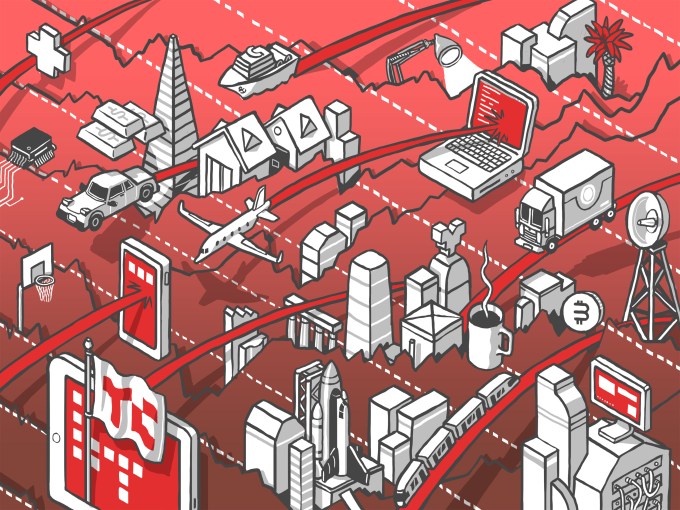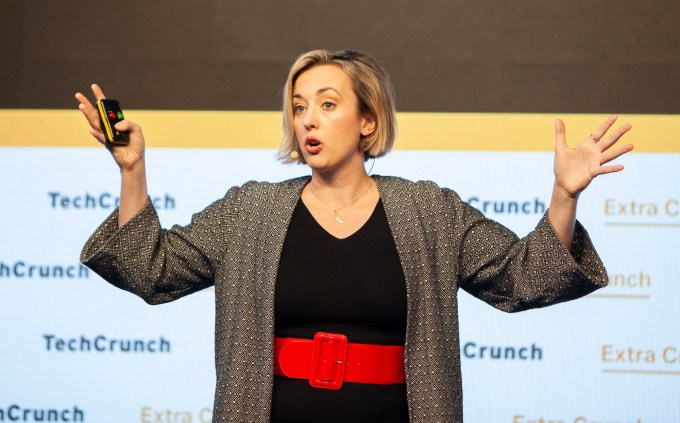| |
| |  Image Credits: Nigel Sussman | | Tech innovation is driven by the desire to solve problems and make money, but as I’ve said previously, FOMO — the fear of missing out — cannot be underestimated. I’m certain FOMO is also a catalyst in other industries, but in San Francisco, it’s as tangible as the traffic and weather: How did X scale so quickly? Why is Y only backing Z startups this quarter? Enterprise companies competing with Databricks are likely feeling a fair amount of FOMO these days. The company, which describes itself as an “open, unified platform for data science, analytics and ML,” grew its revenue from $200 million in Q3 2019 to a run rate approaching $350M in just one year. Alex Wilhelm interviewed Databricks CEO and co-founder Ali Ghodsi to learn about the “three changes that moved it from an interesting open-source startup into the IPO-ready firm we see today.” If that doesn’t give you a case of FOMO, I’m not sure what would. Thanks very much for reading Extra Crunch this week! Walter Thompson
Senior Editor, TechCrunch
@yourprotagonist Read more | | | |
| |  Image Credits: Hans Neleman / Getty Images | | Hacker houses have been a part of tech culture for years, but because the pandemic stopped entrepreneurs from making pilgrimages to Silicon Valley, the model is changing. Instead of bringing sleeping bags to Palo Alto bungalows, founders are setting up dojos with names like “The Launch House.” "We joke that we've got so many people in the house that have different pieces of expertise that you just yell down the hallway if you have a problem," said Pineapple Palace co-founder AJ Scaramucci. "And then it magically gets solved." Read more | | | |
| |
| |  Image Credits: Apple | | Do you remember when people would wait outside a phone store all night so they could be one of the first to activate a new model? Apple’s rollout this week of four new iPhone models that range in price from $699 – $1,099 shows that “long gone are the days when a company could rest on a single flagship or two,” writes hardware editor Brian Heater. He unpacked pricing numbers from market analyst firm Canalys to better understand how “COVID-19 has only exacerbated existing consumer hesitation to spend big on smartphones.” Read more | | | |
| |  Image Credits: Jorg Greuel / Getty Images | | This week, Editor-at-large Mike Butcher interviewed a group of investors based in and around Vienna to get their thoughts about the local startup ecosystem. The country’s startup sector is a standout: public and private initiatives are drawing so many entrepreneurs, the number of tech companies has grown 12% per year since 2008, “significantly faster than the 3% growth rate for traditional companies.” Here's who Mike interviewed: - Eva Arh, principal, Capital 300
- Andreas Nemeth, partner, UNIQA Ventures GmbHLaurenz Simbruner, partner, PUSH Ventures
- Oliver Holle, partner and founder, Speedinvest
- Michael Ströck, partner, Calm/Storm Ventures
- Peter Lasinger, partner, Capital 300
- Christoph Kanneberger, partner, APEX Ventures
- Philipp Thurn und Taxis, partner, CNB Capital
- Markus Wanko, partner, IST cube
Read more | | | |
| |  Image Credits: John Vrionis and Sarah Leary | | Join reporter Natasha Mascarenhas on Tuesday, October 20 for a live discussion with Unusual Ventures’ Sarah Leary (co-founder, Nextdoor) and John Vironi, formerly of Lightspeed Venture Partners. Natasha says she intends to cover a lot of ground during the hour, but she definitely plans to ask “how early-stage venture capital has changed with the rise of rolling funds, community funds and syndicates.” Extra Crunch members are encouraged to submit questions during the live chat, so sign up today to get the private Zoom link. Read more | | | |
| |  Image Credits: Nigel Sussman | | After news broke that meditation app Calm was seeking to raise $150 million to bring its valuation near $2.2 billion, Alex Wilhelm pored over data from 2018 – 2020 to see how well the company has performed. Given the daily news cycle, “it's not hard to guess why consumers are turning to meditation apps in large numbers,” but that doesn’t mean we should overlook some of the “potential stumbling blocks” facing meditation apps, he writes. Read more | | | |
| |  Image Credits: picture alliance / Getty Images | | The world’s most valuable car company does not have an internal PR department. This creates some challenges for my colleagues who report on Tesla, but it also sets up the company and its employees for potential disaster, says Ayelet Noff, founder and CEO of SlicedBrand. “This decision will affect the engineers and developers, marketing teams and all employees who put their all into the technology and company image, only to have it eventually misrepresented in the media,” she writes. Read more | | | |
| |  Image Credits: Brighteye Ventures | | European edtech VC firm Brighteye Ventures announced the $54 million first close of its second fund. The shop plans to invest in up to 20 early-stage companies that “enhance learning” over the next three years, according to Managing Partner Alex Latsis, who spoke to Steve O’Hear about the thesis-driven fund’s remit. “As education is a complex field we always seek to establish a degree of founder market fit, but more importantly that the founding teams themselves are a good fit internally,” said Latsis. “No startup succeeds on the merits of a founder alone, even if they may be driving the momentum.” Read more | | | |
| |  Image Credits: Sophie Alcorn | | Dear Sophie: I'm currently in the U.S. on a business visitor visa. I arrived here in early March just before the COVID-19 pandemic began here to scope out the U.S. market for expanding the startup I co-founded in Bolivia a few years ago. I had only planned to stay a couple months, but got stuck. Now my company has some real opportunities to expand. How can I stay and start working? — Satisfied in San Jose Read more | | | |
| |
| |
| |
| |
Post a Comment